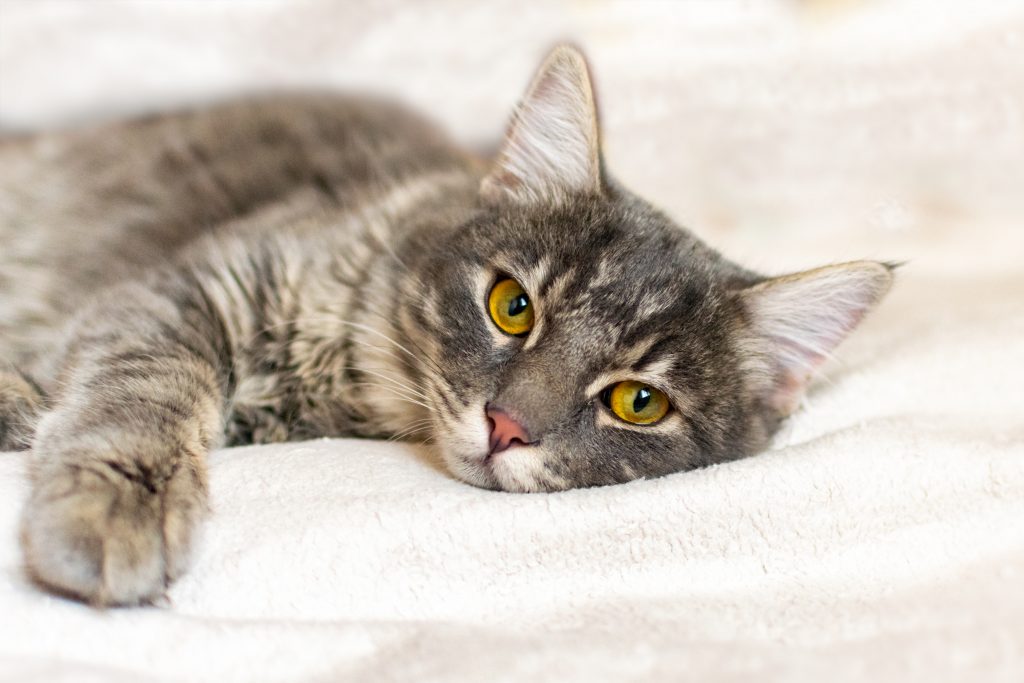When you have a sick pet, then it’s not just your cat having a bad time. As an owner, it can be extremely distressing for your much-loved pet to be unwell, to be unable to communicate its symptoms to you, or to communicate to it that all will be well. Learning how to take care of a sick cat in a way that’s helpful and calming to it is a key part of being a pet owner.
Vomiting and Diarrhea
These are the most common symptoms you’ll see from your cat. Stomach upsets are relatively common in the feline world, as however well you feed your cat it’s likely to hunt and scavenge and eventually eat something that disagrees with it.
As long as you don’t see any blood in your cat’s vomit or faeces, and they’re behaving otherwise normally then you don’t have to worry immediately. The first and best cat diarrhea treatment is to keep your cat indoors and well hydrated. Offer highly digestible meals little and often, or boiled fish or chicken with rice. Diarrhea and vomiting both cause fluid loss that needs to be compensated for so make sure they have access to clean, fresh water at all times. If they’ve been vomiting a lot, it’s worth picking up some feline rehydration supplements to help maintain your cat’s electrolyte levels.
Once they return to normal, then you can start to reintroduce their normal food. If they’re still suffering, it’s time to make a call to the vet.
Pain and Injuries
Whether it’s in play, in a fight or by accident, there are times when your cat could suffer an injury. Cats often try to disguise the fact they’re injured and in pain so the first thing you notice could be a change in their behaviour: look out for your cat becoming aggressive and lashing out, or being more withdrawn than usual.
If your cat’s in pain then it’s always worth a trip to the vet: a surface injury needs to be treated against infection, and pain with no obvious cause could be even more serious!
Once the vet has checked your cat over and prescribed medication, you need to give your injured cat a safe, stable place to recover. If you have the space, a whole room is ideal, if not, part of a room, fenced off so it won’t be disturbed unexpectedly by other pets, children or family members – cats don’t like to be surprised, especially when they’re injured.
Make sure there are blankets, boxes and cushions – give your cat options to choose somewhere to rest that feels comfortable and safe – and the most important thing you can provide is water. Dehydration can make most health conditions more serious and if your cat’s in pain, it won’t want to travel far for water: keep their water bowl or fountain nearby and topped up with fresh water while they heal.
